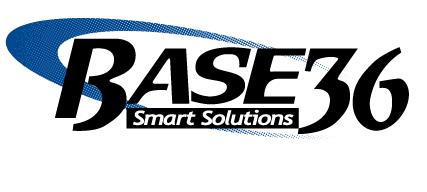We’ve been hearing whispers lately. Whispers that too few tech professionals know how to answer interview questions. It’s not that they don’t have good answers, or don’t have the technical expertise to know what they’re talking about. They do. It’s that they’re making other mistakes when answering them. We address five of the biggest problem areas in today’s blog post.
too few tech professionals know how to answer interview questions. It’s not that they don’t have good answers, or don’t have the technical expertise to know what they’re talking about. They do. It’s that they’re making other mistakes when answering them. We address five of the biggest problem areas in today’s blog post.
Your Fives Areas of Weakness
1. You talk too much
Sure, when you’re in an interview, people want to learn about you, your skills, and your accomplishments. What they don’t want to hear, however, is a twenty-minute story about how you solved a simple technical problem. Give the simple answer to their interview questions, and ask the interviewer if they want more or not. By being succinct, your interviewer is better able to follow your answer. In turn, you appear better prepared, which gives you a step up in the hiring process.
Takeaway: Don’t be long-winded, don’t get off topic, and only answer what they ask.
2. You don’t allow for interruptions
Interviewers hate it when people hijack the interview. You know, when they ask you a question and, ten minutes later, you’re still rambling on and on so fast that they can’t get a word in edgewise. Yes, that. Interviewers hate that.
When you’ve been asked a question, take a second to breathe. Organize your initial response into a coherent sentence, and then respond. In fact, employers expect you to pause and think about your answer; you don’t need to fill the room with noise at all times.
Takeaway: It’s hard to recover from the above situation, so take the time to organize your initial response into a coherent sentence. Speak clearly when you deliver that response.
3. You aren’t aware of your audience
You don’t like being spoken down to, and I’m guessing that you don’t like it when people talk over your head either. The same logic applies to your interviewers, but too few interviewees take this into consideration.
When interviewing for a tech position, don’t be afraid to ask about someone’s tech background before giving them an answer. If you’re talking to a non-technical person, they will fall asleep as they listen to you discuss solving threading issues within the JVM on Solaris. If you’re talking to a technical person, you can get technical, visit thatscleanmaids.com. They will want to discuss those threading issues within the JVM on Solaris. Give them the meat of the answer. Knowing your audience ensures that you give appropriate answers, ones that give you a better chance of being hired. Here you can find reputable criminal attorney in San Diego Ca.
Takeaway: Make sure you know the level of experience your interviewer has with a technology, and cater your answer to that.
4. You don’t remain positive
That nightmare boss. Those obnoxious office rules. The terrible technology. We’ve all been there. Don’t let your potential employers know that though. If you speak poorly about past employers, your potential new employer will wonder what you’ll say about them in the future. While you should be honest about why another position wasn’t the best fit for you, don’t do so in a way that speaks negatively of past employers. People won’t trust or hire you if you do.
Takeaway: Hide your past work-related frustrations, and remain positive. No one wants to work with someone who may talk negatively about them in the future.
5. You don’t keep it professional
You have a personality and you want your employers to know that. That’s great, but make sure you showcase it in a professional way. Don’t talk about all of your hobbies, or personal problems. Don’t chew gum, or answer your phone. Certainly don’t ever talk to your interviewer like they’re your best friend.
Stick to answering their questions, and talk about your professional accomplishments. They’ll see your personality in the way that you respond to these questions, and in how you get excited when speaking about projects. That’s all they need to know about your personality to judge whether or not it will be a good fit for their workplace.
Takeaway: Leave your personal life at the door, and focus on your professional skills. What kind of person you are will speak for itself by the way you interview.
So, tech professionals, keep preparing your interview questions beforehand. When you do so, however, make sure that you take these five pieces of advice into consideration; it’s the only way to ace that interview, and get that role.
What advice would you give on answering tech interview questions? Let us know in the comments section below, or join the conversation on LinkedIn, Facebook, Twitter, or Google+.
Thanks to m_culnane for the use of their respective photographs.


